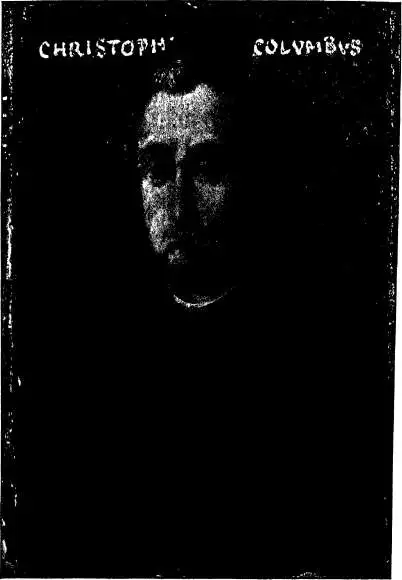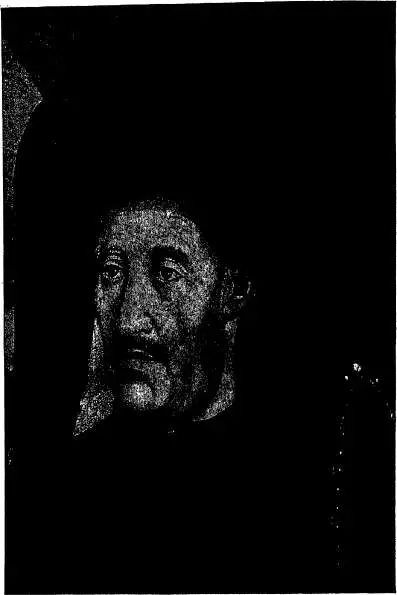Portugal no longer needed to press men into the service, for adventurous spirits flocked from all lands. Every new successful voyage made the mariners bolder. A brood of young and hardy fellows sprang to life, persons who were no longer inclined to count the risks or reckon up the cost. As always when a new generation is inspired with zeal for new work, the world became transformed.
The death of Prince Henry meant no more than a momentary pause, the drawing of a deep breath before the next great leap. Hardly had the energetic King John II ascended the throne in the year 1481, when there ensued an impetus exceeding every expectation. What had proceeded at a snail's pace, now went with the rush of a charging lion. Hitherto, explorers had crept along the coast, but now they advanced with giant strides, exploring as much as a hundred or even several hundred miles a year. Perhaps only our own generation, which is witnessing the conquest of the air, only we, who hardly more than thirty years ago were willing to rejoice at the tidings of the flight of an aeroplane which was able to sustain itself in the air for five or ten miles beyond its starting-point at the Champ-de-Mars; who were wildly excited when, in 1909, Blériot flew across the English Channel, and then, only eighteen years later, were told of the first flight across the Atlantic and of the successful aerial voyage from England to Australia—only we are perhaps in a position to understand the excitement that ran through Europe when, towards the close of the fifteenth century, it heard of the triumphs of Portugal. In 1471 the Equator was reached; in 1483 Diogo Cam landed at the mouth of the Congo; and at length, in 1486, Prince Henry's prophetic dream was fulfilled. A Portuguese navigator, Bartholomeu Dias, rounded the southern point of Africa, now known as the Cape of Good Hope, but by him, for adequate reasons, christened Cabo Tormentoso —the Cape of Storms. Though his sails were torn to rags and his ship was partly dismasted, the bold adventurer kept on his course to where the east coast of Africa begins at Algoa Bay. Here Mohammedan pilots could have been taken aboard to guide him across the Indian Ocean, but his men mutinied, refusing to go any farther. For the moment he had done all that he could. Sad at heart he returned, deprived by the cowardice of his crew of the fame of being the first European to reach the Indies by sea. It was left to another Portuguese, Vasco da Gama, to do this great deed; for, as so often, the beginner, the luckless initiator, is almost forgotten amid the glories of the successful finisher. No matter, the decisive deed had been done. For the first time the geographical shape of Africa had been determined, and, in defiance of Ptolemy's authority, it had been proved that there existed a sea route to the Indies. The disciples and the heirs of Prince Henry the Navigator had fulfilled their master's wish-dream a generation after their master's death.
The gaze of the Western World was now directed with astonishment and envy at this small and hitherto unconsidered nation of sailors established upon the south-western corner of Europe. While the great powers—France, Germany, and Italy—were wasting their strength and their substance in senseless wars, Portugal, regarded as a Cinderella, had enormously enlarged her territories, so that it seemed as if no limits could be imposed upon her ambitions. Between night and morning she had become the sensation of the world, winning new realms vaster by far than any mere provinces. Within a decade, she, least among European nations, was claiming the ownership of more lands than had belonged to the Roman Empire in the days of its greatest expansion.
The attempt to enforce such extravagant imperialist claims would not fail to result in a speedy exhaustion of the energies of Portugal. Any child might have foreseen that so tiny a Land, which contained no more than one and a half million inhabitants, could not, in the long run, occupy, colonize, administer, or merely monopolize the trade of all Africa, India, and Brazil; and still less defend these vast possessions against the jealousies of other nations. One drop of oil cannot calm the waters of a stormy sea, nor can a country the size of a pin-head permanently subjugate enormous territories. Thus from a reasonable point of view the boundless expansion of Portugal was an absurdity, a dangerous form of quixotry. But it is part of the irrational nature of heroism that whenever a man or a people undertakes a task that exceeds the bounds of possibility, the energies grow to an unexpected degree.

COLOMBUS
Painting in the Portrait Collection of
Archduke Ferdinand of Tirol

PRINCE HENRY THE NAVIGATOR
Detail from the triptych in the Museum of Early Art, Lisbon
Never perhaps did any nation concentrate its forces more splendidly than did Portugal at the close of the fifteenth century. Not only did she find her Alexander and her Argonauts in Albuquerque, Vasco da Gama, and Magellan, but she discovered her Homer in Camoens and her Livy in Barros. Men of learning, architects, and noted merchants seemed to crop up on all sides. As in Hellas under Pericles, in England under Elizabeth, in France under Napoleon, so, at this date, Portugal realized her ideal and made it materially manifest before the world. Even though in her heroic struggle she was bled white and rendered exsanguine for centuries; though almost everything which, at such cost, she now got possession of, was subsequently torn from her grasp—undeniably her glories were proved in word and deed. For a brief space in history, Portugal was the leading nation of Europe, the advance guard of mankind.
Now whatever great deed is done by one nation is done for all the nations.
1 comment